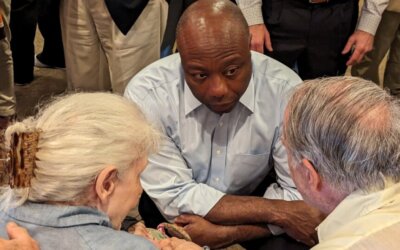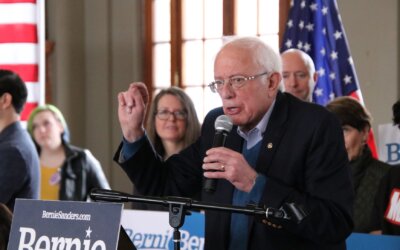
Photo by Julie Fleming
No candidate in this 2020 race has had as much unexpected success as Andrew Yang. The New York entrepreneur has endured in a race where so many experienced candidates dropped out, he’s out-raised much of the field with his grassroots army and has brought the universal basic income idea into the mainstream.
Tonight, he heads into the Iowa Caucus after spending 17 days straight in Iowa, outpacing all others in number of events held here in the final month. Riding in his campaign bus, Yang has often crammed five or more stops in a day on his tour, showing up in smaller, rural counties while most of the other Democrats stuck to urban areas in the closing weeks.
He’s been rewarded with impressive crowds, drawing over 1,200 to a Des Moines rally this weekend, more in the capital city than most of the front-runners have seen. And it feels like he may well “shock the world” tonight with his turnout numbers, as he’s been predicting on the trail.
All that being said, Yang’s still been in the single digits in every recent Iowa poll, oftentimes on the lower end. He may ride an impressive first-alignment number to a media bump after today, but it’s very unlikely he leapfrogs someone for fourth or fifth place or gathers too many delegates.
Yang could, however, have a decisive impact on how the four front-runners’ evenings turn out. By turning out many nontraditional voters, including many disaffected Republicans and former Trump voters, his corner on caucus night adds extra unpredictability to everything.
“I have caucused before, but only as a Republican,” Greg Hoenig, a military veteran from Winterset, said at a Yang event last month. “I actually just became a Democrat a few months ago and switched parties to vote for Andrew.”
[inline-ad id=”0″]
In recent days, Yang has said on the record that he thinks his supporters would “naturally head to Bernie” if he isn’t able to crack the 15% threshold for viability in Iowa precincts on caucus night. But there isn’t any public plan or deal yet coming from Yang of what those non-viable supporters should do.
“Right now, we have no guidance for our caucus-goers who don’t find us to be viable,” Yang said to ABC news. “And I don’t think they need me to say that they like Bernie for them to know that they like Bernie. I think Bernie and I do have a lot of overlap in support, so it wouldn’t be surprising to me if many of our supporters head that direction.”
What’s most interesting about Yang’s dynamics on caucus night is that it easily may not have played out like this. For someone like Yang, an 8% or 10% showing in New Hampshire could be the major boost he needs for more media and voter attention. In Iowa, you run the risk of getting 0% to 1% in the final delegate count thanks to the 15% viability rule.
You also need a strong ground game here to organize your precincts. Around half of Yang’s precinct captains are from out-of-state, and while it’s still better to have someone in the room, the other campaigns have built out bigger local operations over the past year.
The new reporting numbers will show Yang’s initial numbers, so there’s still an accounting for his support, but it was an interesting and risky strategy to go all-in in Iowa, spending 17 entire days here at the end, instead of decamping to New Hampshire. And it could determine who wins the Iowa Caucus.
[inline-ad id=”1″]
Fellow Outsider Candidates
Like Sanders, Yang often discusses his frustration with Democratic Party politics and often touts his grassroots support.
“This is all an uprising of the people to take back our government and get it working for us again,” Yang said at Thursday event in Washington, Iowa.
Also similar to Sanders, Yang appeals to many of the state’s disaffected voters.
“I just don’t trust D.C. that much, and I feel like Yang isn’t a part of that culture,” Noah Davison, a 22-year-old student in Cedar Rapids at a Yang event last month. “He’s like a real person and not a politician.”
Davison is getting ready to caucus for his first time. He was eligible to do so in 2016, but didn’t. Now, he has Yang at the front of his short list, but is also considering Sanders, Tulsi Gabbard and Tom Steyer.
[inline-ad id=”2″]
Dan Young, a 29-year-old Dubuque resident who attended Yang’s Thursday town hall in the city, said he’s been a supporter for a “couple of months,” also citing Yang’s lack of a connection to D.C.
“He’s not a career politician. And that’s something that, in my opinion, how can you relate to me if that’s something you’ve been doing your whole life?” Young said.
But if he had to choose a top-tier candidate to caucus for, Young said he’d go with Sanders, who he sees as a fellow outsider candidate.
“Personally, I’m not going to lie, there’s not a mainstream candidate on either side that I want to caucus for. If you’re pointing a gun to my head, I’d probably go for Bernie,” he said. “I can see the similarity [Between Yang and Bernie] in that they’re people that have fought for working-class people. And they support policy with what they do in their personal life.”
Possible Caucus Night Scenarios
While you can find some former Sanders caucus-goers who are now backing Yang, it seems much of Yang’s support comes from a new bloc of voters that he will uniquely turn out for him on caucus night. Who can that help or hurt?
In one scenario, if Yang is not viable in the vast majority of Iowa’s precincts and the majority of his caucus-goers switch to Sanders during realignment, it could greatly help Sanders both in the delegate race and the spin game.
[inline-ad id=”3″]
Currently, it appears that Sanders’ campaign will declare victory off of the first alignment number, the raw vote total of Iowans’ first choice when they enter the room. Most news networks are planning on using the final state delegate equivalent totals, as has been the standard in the past, to show an official “winner.”
The multiple reporting numbers this year should help Sanders by letting him point to initial total support; his overwhelming wins on college campuses last time were stunted in the delegate totals.
But there’s also a very, very big danger for Sanders in the narrative game: the multiple reporting numbers will let us see which candidate grew their support the most from first alignment to second alignment. That will give some candidate the talking point that they can best unite the party because so many Iowans had them as their second choice. If Sanders doesn’t bring over many people in realignment, critics can point to how he has a too-narrow, if still enthusiastic, base to win in the longterm in the primary.
Here’s where Yang’s supporters come in.
Not only could their realignment help Sanders in the total delegate count, they could shut down that possible damaging narrative. By boosting Sanders’ numbers by three to five percentage points between the two rounds, he may not trail the increase in support that someone like Elizabeth Warren and Pete Buttigieg by too much.
[inline-ad id=”4″]
However, there’s also the possibility that Yang’s all-in Iowa approach damages Sanders.
For one, Iowans who would have otherwise gone with Sanders on the first alignment choosing Yang could depress Sanders’ initial raw vote count they are relying upon.
Or, worse: Yang’s nonstop campaigning in Iowa will almost certainly get him to viability in some precincts, which wipes out any potential benefit to Sanders. The question is just how many places that happens. The biggest threat probably lies on college campuses, which could rob Sanders of some of the overwhelming victories there he enjoyed in 2016.
Not All Uniform
Of course, just like all candidates, Yang’s support is far from monolith. Many we’ve talked to out at events are also considering other candidates.
“I’m actually a high school math teacher and I was really excited to hear that our students straw-polled for Yang,” said Terry Schneekloth, 50, of Cedar Rapids. “I’m a registered Independent but plan to caucus in the Democratic caucus here in Cedar Rapids, for Andrew.”
[inline-ad id=”5″]
Schneekloth said he’ll support Buttigieg if Yang isn’t viable.
Cheryl Barnes, a 66-year-old Washington, IA resident said she wouldn’t be surprised if Yang does well on caucus night. Many of her neighbors are Yang supporters, she said, but she’ll caucus for Warren if Yang isn’t viable.
Another Yang supporter who will move to Warren if needed is Tony Clark, 60, from Cedar Rapids.
Clark said he’s been a Yang supporter for a few weeks, but “hasn’t been to a caucus in years.”
“I’d probably go with Warren,” he said, if Yang doesn’t meet the viability threshold. “She kicks ass. It’s just that simple. She’s a fighter. Her latest promo with the endorsements from her family and friends was very impressive.”
Clark said he expects for the frontrunners to do well on caucus night—he wouldn’t be shocked if Yang doesn’t meet the 15% threshold this Monday.
“I’m trying to figure out how I’m going to conduct myself if he doesn’t have enough showing. I am going to go to Warren, but it’s like, I’m hoping he sticks around long enough for the convention. The fact that he’s moving up in the polls. I’ve seen this kind of drive before.”
[signup_form]
Neely Farren, 52, from Dubuque, said she was originally considering caucusing for Warren, and her husband for Buttigieg, but they’d need to reconsider after their interest in Yang peaked at his Dubuque event.
“For me, it was the foundational piece. Getting to the foundation of everything, versus something like getting rid of all student loan debt. That’s great, right. But it’s still not going to solve all of the issues. And it feels like Andrew is doing that,” Farren said.
The Real Winner
Regardless of how Yang’s support translates to the front-runners, it’s clear one of the real winners in this entire process has been Yang himself. From a complete unknown to one of the last competitive candidates, he’s both lifted up his issues and found a solid base of devoted followers. And even most Iowa Democrats who aren’t going to caucus for Yang still speak very highly of him, admiring his down-to-earth personality and ability to crack jokes on the trail.
[inline-ad id=”6″]
Yang even got emotional, on stage at his Dubuque event after reflecting on the time he has spent in the state.
“I’ve been coming to Iowa for almost two years,” Yang said. “I started coming in Spring of 2018, I have to say I loved campaigning here, you all have been beautiful to me and my family.”
“I’m really glad that you all are going to determine the future of our country,” Yang added, his voice wavering.
Yang placed his head in one of his hands, tearing up while the audience applauded, a man shouting out, “Thank you, Andrew!”
by Pat Rynard, Isabella Murray and Josh Cook
Posted 2/3/20
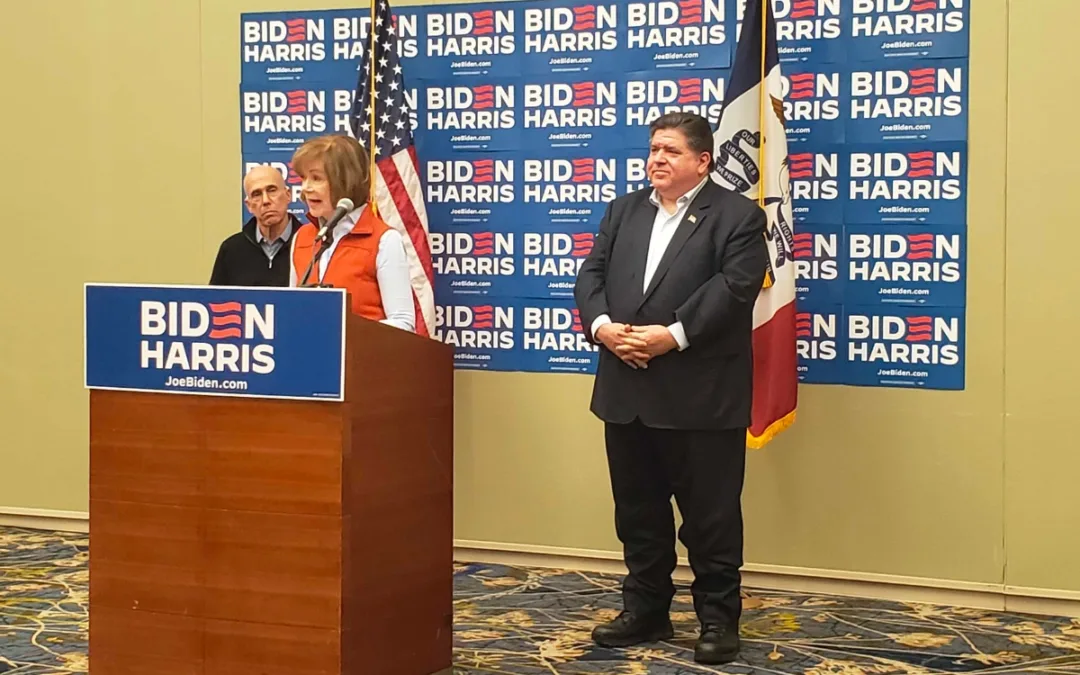
Original, heels or boots: Pritzker says leading Republicans are all MAGA
Illinois Gov. JB Pritzker said all three leading candidates in the Iowa GOP caucus—Donald Trump, Nikki Haley, and Ron DeSantis—represent the same...
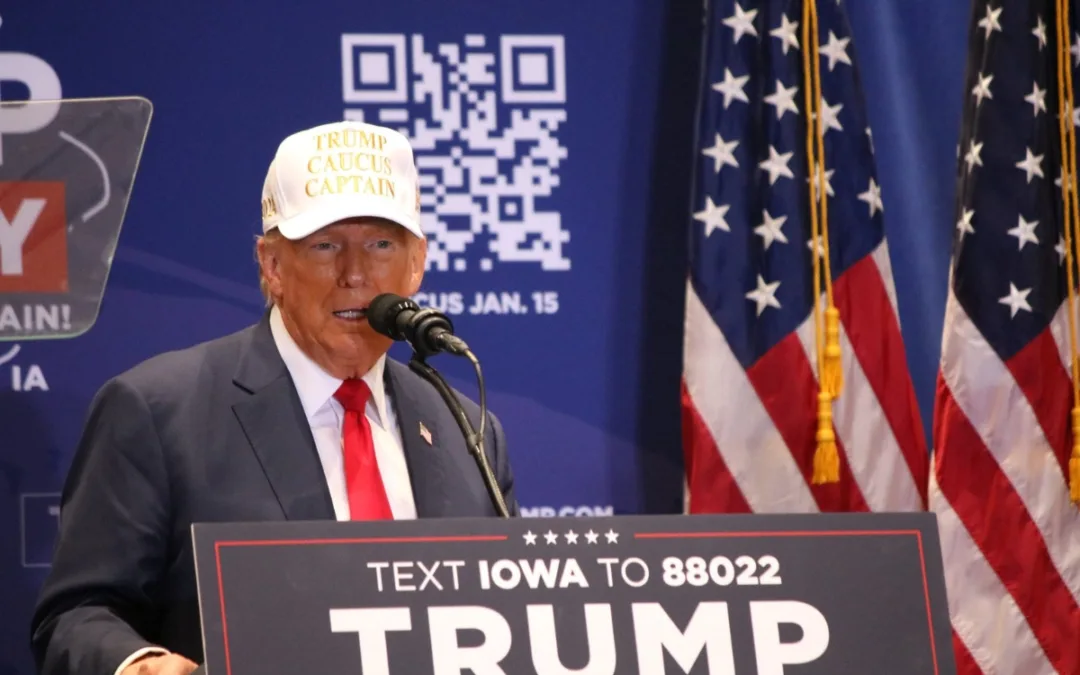
Trump tells supporters it is worth dying to caucus for him
Former President Donald Trump continues to encourage his massive base to turn out in droves for him during Monday’s Republican caucus and told an...

Climate change protesters disrupt Ron DeSantis event
Climate protesters disrupted a Gov. Ron DeSantis campaign event in Ames on Thursday night. Three protesters were escorted out of the room at...

Evangelical leaders predict huge caucus turnout, downplay endorsements
Iowa caucus candidates have racked up big-name endorsements—including a notable last-minute flip flop—but one evangelical leader said none of that...

We went to Vivek Ramaswamy’s ‘Vektoberfest.’ Here’s what we saw
As I sat on a park bench eating a bacon-grilled cheese sandwich, drinking an Exile Ruthie straight from the tap, and chit-chatting with a few folks,...
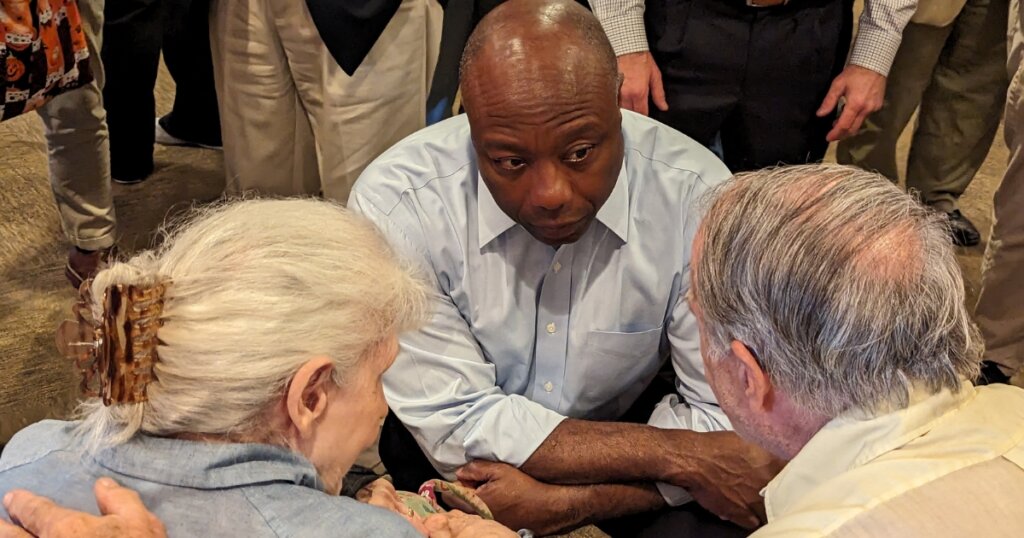
Tim Scott says kids need more exposure to conservatism
While many Republicans across the country have spent the last few years arguing that public schools are being used to indoctrinate kids into leftist...


